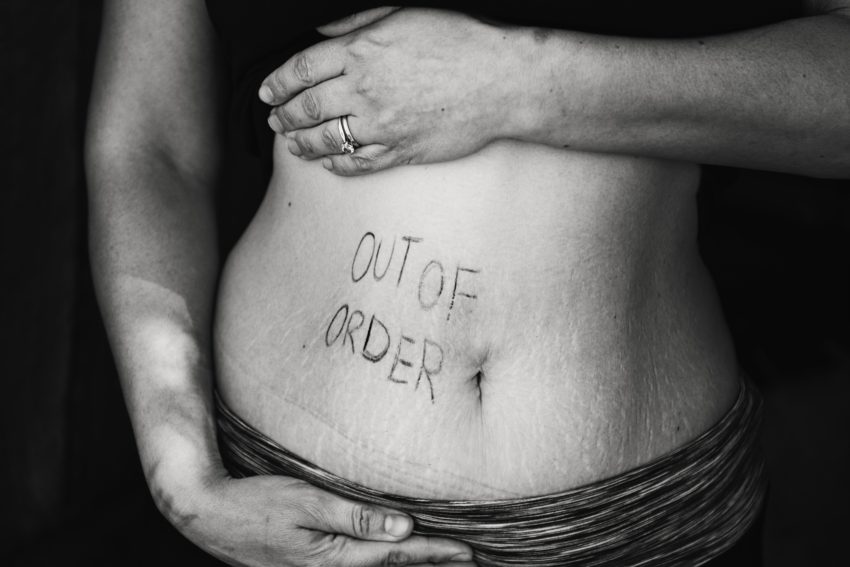 The best diet for hormone health may be simpler than you think! It doesn’t have to involve elaborate meals, tracking every bite that goes into your mouth or “superfoods”. We see a pattern in our patients of overthinking nutrition, when in reality there are just a few key guidelines to follow. These recommendations are suitable for our gynecological patients (painful periods, heavy periods, or absent periods) or patients trying to conceive.
The best diet for hormone health may be simpler than you think! It doesn’t have to involve elaborate meals, tracking every bite that goes into your mouth or “superfoods”. We see a pattern in our patients of overthinking nutrition, when in reality there are just a few key guidelines to follow. These recommendations are suitable for our gynecological patients (painful periods, heavy periods, or absent periods) or patients trying to conceive.
Your diet should primarily consist of whole, nutrient-dense foods such as vegetables (any kind, go crazy!!), meat, eggs, fruits and minimally processed grains like oats, rice, beans, etc. When we say “primarily consist”, we are talking anywhere from 80-90% of your food intake should be from these sources. This means, if you are having 3 meals per day, over the course of a week all but 2 or 3 of your meals are composed of whole, nutrient dense, minimally processed foods.
Eat actual meals. Eating proper meals that are large enough (500-800 calories for a full-grown human woman), with adequate protein, fats and carbohydrates will keep you full and satisfied, supply your body with consistent energy, keep your blood sugar balanced. The number of meals per day might vary slightly based on personal preference but most women will do well with 2-4 meals per day, consumed at regular intervals.
Consume adequate dietary fiber and incorporate cruciferous vegetables. Eating enough dietary fiber will help with blood sugar control, elimination and digestion, all of which keep your hormones happy. Fiber needs can range from 25-35 grams per day and should come from food rather than supplementation. Some great fiber sources are avocados, beans, raspberries, bean pastas. In addition, cruciferous vegetables like broccoli, cauliflower, brussels sprouts, cabbage will give your body key nutrients needed for metabolizing hormones. Just make sure they are cooked adequately (until soft) for good digestion.
Consume adequate dietary fats. Adequate dietary fat is essential for optimal hormone funnction as fats are the building blocks of sex hormones. Generally a minimum of 50g of fat per day is recommended but some women may need (or want) upwards of 70-90 grams. Think about it this way, if you are aiming for 65 grams of fat per day, and you plan to have 3 meals per day, that’s just over 20 grams at each meal. This could come from meat, cooking oils, salad dressings or sauces, nuts and seeds or a combination of all the above.
The following could be a sample day of eating, following these guidelines:
Breakfast 8:00 am:
- 2-3 whole eggs with veggies
- 1 Cup raspberries
- 1-2 slices toast (depending on size) with 1-2 Tablespoons peanut or almond butter
Lunch 1:00 pm
- 4 ounces protein
- 1-2 Cups of vegetable (any kind, steam, roast, sauté! Can be a salad but only if you do not have any digestive problems)
- ½-1 Cup Rice/potatoes/minimally processed carbohydrates
- Enough fat to fill in gaps left by protein. If you are having a higher fat protein like chicken thighs you might not need additional fats
Dinner 7:00pm
- Repeat lunch outline 🙂
- You choose different protein, veggies and carb for example if lunch was
- 4 ounces chicken thighs
- 2 cups roasted mixed veggies (tossed in olive oil before roasting)
- 1 cup rice
Dinner can be:
- 3-5 ounces lean grass-fed beef made into meatballs
- 2 ounces Banza chickpea pasta
- Pasta Sauce
- Veggies sautéed in garlic and olive oil
Eating to support your hormones is fairly simple. That doesn’t mean it’s easy though; its takes some work and planning on your part but the more practice you get the easier it becomes. If you need any guidance or want more personalized recommendations or meal plans, just schedule a free consultation!
Dr. Ann




